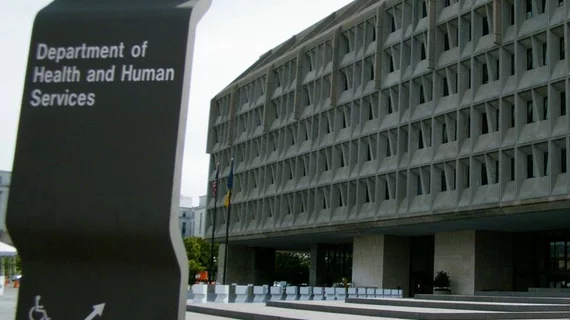Industry Watcher’s Digest
Buzzworthy developments of the past few days.
- HHS has begun doing healthcare AI differently. For one thing, it’s meshing AI strategy and policy functions with cybersecurity and data duties. For another, to reflect this and other “streamlining” changes, it has rebadged the ONC the ASTP/ONC (for Assistant Secretary for Technology Policy and Office of the National Coordinator for Health Information Technology). Adding more letters to a bowl of alphabet soup seems a counterintuitive way to streamline anything, but let’s give them a chance before judging. “For decades, HHS has worked across the organization to ensure appropriate and safe use of technology, data and AI to advance the health and well-being of the American people,” says HHS Secretary Xavier Becerra. “This reorganization builds on that success and prepares the Department for the challenges that lie ahead.”
- This seems counterintuitive too. A strong majority of Baby Boomers, 84%, believe AI can help keep health data accurate. Yet Gen Z, which grew up with techie devices in hand, is the most likely generation to have to deal with inaccuracies. And often those are handled manually, as in over the phone. Meanwhile all generations, but especially Boomers, blame human error for inaccurate healthcare records. The findings are from a national online survey of 1,006 consumers commissioned by Carta Healthcare.
- AI for claims denials? Two can play at that game. Doctors are using AI to fight back against health insurers who use AI to get out of paying, according to an article filed by Computerworld reporter Lucas Mearian. He speaks with subject matter expert Ashish Jha, MD, MPH, dean of the School of Public Health at Brown University. “In my mind, this is just round one of the AI-vs-AI battle,” Jha says. “There will be escalation here.”
- This is not Timothy Leary’s Hallucination Index. It’s Galileo’s. That’s Galileo, the GenAI supplier. The company’s resource ranks 22 large language models. The latest list, posted July 29, shows Anthropic’s Claude 3.5 Sonnet as the best performer, Google’s Gemini 1.5 Flash as the best on cost and Alibaba’s Qwen2-72B-Instruct as the best open-sourcer. (Brush up on Timothy Leary’s legacy in hallucinogenic history here.)
- The healthcare system with a quantum computer in a public lobby has hired its first chief AI officer. The institution is the Cleveland Clinic. The new member of its C-suite is Ben Shahshahani, PhD, whose immediate previous post was senior VP of science, machine learning and product analytics at SiriusXM and Pandora. Announcement here.
- Two tech concerns that are both kind of a big deal are combining forces over healthcare AI. You might have heard of these players—GE HealthCare and Amazon Web Services. In announcing the team-up, GE technology honcho Taha Kass-Hout, MD, comments on the state of healthcare technology in the GenAI era. “We haven’t seen progress like this,” Kass-Hout says, “since the emergence of the internet.”
- China snaps back at Sam Altman. Last week the OpenAI CEO wrote a high-profile opinion piece warning of “authoritarian” things to come should China win the AI arms race. The Washington Post ran it. This week a spokesperson for the Chinese Embassy in the U.S. tells Altman to kiss off. Not in those exact words, of course. “China has consistently advocated that the development of artificial intelligence should adhere to principles that are human-centered and promote benevolence,” the spokesperson tells Newsweek. “China believes that AI development should be fair and inclusive, ensuring that all countries equally enjoy the benefits brought by AI, and has no intention of seeking dominance in this field.”
- Google gently responds to Elon Musk. The tech tycoon and others had accused the search monster of messing with results when users tried to search for “assassination attempt on Trump” and similar terms. The main mischief seemed to occur in the engine’s auto-complete field. Some users found they couldn’t get the auto-fill to suggest “Trump.” Instead they kept getting “Truman.” Or Donald Trump became Donald Duck. That sort of thing. In any case, Google tells Fortune it did not take “manual action” on the auto-complete predictions, and will be “working on improvements” to its auto-complete feature. Meanwhile the New York Post covers the kerfuffle as only it can.
- That’s not legendary sports broadcaster Al Michaels commentating at the Paris Olympics. It’s AI Al Michaels. The real one is sitting this one out. And it turns out he’s just as impressed with the impersonation as you would be. “Frankly, it was astonishing,” Michaels tells The Sporting News of the first time he heard his digital double. “It was amazing, and it was a little bit frightening.”
- Recent research in the news:
- Katholieke Universiteit Leuven: Can a computer tell patients how their multiple sclerosis will progress?
- Katholieke Universiteit Leuven: Can a computer tell patients how their multiple sclerosis will progress?
- AI funding news of note:
- Clarapath closes $36M round to transform 150-year old laboratory processes with modern robotics
- deepc closes $13M Series A extension to accelerate global deployment of healthcare AI, bringing total funding to $30M
- With ‘radical’ concept for AI chips, startup Fractile emerges from stealth with $15M to try to challenge Nvidia
- Ochsner launches $10M Louisiana Innovation Fund to help healthcare entrepreneurs
- Clarapath closes $36M round to transform 150-year old laboratory processes with modern robotics
- From AIin.Healthcare’s news partners:

